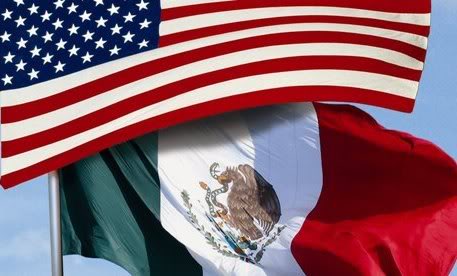Evolving U.S.-Mexico Relations and Obama’s Visit

 By Stratfor
By Stratfor
When U.S. President Barack Obama travels to Mexico on May 2, he will arrive amid a period of sweeping transformation in the country. Embroiled in myriad political battles and seeking to implement an extensive slate of national reforms, Mexican President Enrique Pena Nieto’s administration has been focused almost solely on internal affairs. Meanwhile, after years of delay, the U.S. Congress has been debating gun control and immigration reform — two issues of serious interest to the Mexican government.
U.S.-Mexican relations are strategically important to both countries, and Mexico’s period of transition has created opportunities for each to reshape the partnership. And although U.S. media attention has focused primarily on bilateral security issues ahead of Obama’s visit — namely cooperation in Mexico’s drug war — the Pena Nieto administration is working with Washington to re-orient the cross-border conversation to one centered primarily on mutual economic possibility.
Analysis
As the first member of Mexico’s Institutional Revolutionary Party to win the presidency this century, Pena Nieto has set about reconsolidating the party’s control over the government while attempting to turn attention away from the country’s entrenched security issues and toward its economic opportunities. The pace of reform and political cooperation since the new government was elected July 1 has been unusually high for Mexico.
Labor and education overhauls passed through the legislature relatively easily, and banking reforms intended to broadly increase access to credit are set to be proposed once the legislature reconvenes in September. The administration still has an aggressive to-do list remaining, with planned overhauls ranging from the telecommunications and energy sectors to issues such as taxation. The majority of the reforms has been structural in nature and driven by economic imperatives, representing a notable shift in tempo and character from the previous government, which saw its legislative efforts largely stall for years prior to the 2012 election.
Domestic political factors will determine the success of the pending overhauls. But the labor reform could improve bilateral commerce and investment with the United States, as would a successful liberalization of the country’s energy sector in the coming years. Mexico is already the United States’ third-largest trading partner, and economic coordination between the two countries has become a routine matter at the ministerial level, but there is still a need to ease bureaucratic trade and investment barriers.
Security Cooperation and Centralization
Pena Nieto’s predecessor, the National Action Party’s Felipe Calderon, focused heavily on Mexico’s security challenges and oversaw the sustained military offensive against criminal organizations throughout the country. Pena Nieto has yet to elaborate much on his plans to address the security issues, but he has emphasized the need to combat street violence and kidnappings, while playing down the importance of combating drug trafficking — a U.S. priority.
But ahead of Obama’s visit, certain details have emerged indicating that the Pena Nieto administration intends to change the nature of intelligence cooperation between the United States and Mexico. Until now, the two countries’ various law enforcement and intelligence agencies have been able to interact directly, but Mexico’s interior ministry will begin overseeing all intelligence collaboration.
This centralization effort has not been isolated to cooperation with the United States. The Mexican Interior Ministry has also taken charge of the federal police, and Pena Nieto intends to eventually create a national gendarmarie under the interior secretariat in order to fill the role in the drug wars currently played by the Mexican military with a security body better equipped with law enforcement training.
Thus, the extent and manner to which this centralization will affect security cooperation with the United States is unclear. But the changes are primarily designed to give Mexico greater control over the intelligence process involved in combating the country’s violent gangs. The intention is not to block U.S. collaboration and assistance, but rather to reform existing structures.
Domestic Issues, Bilateral Implications
While Mexico reorients its internal focus to structural changes that its leaders hope will lay foundations for economic development, the country could also be affected by domestic issues under debate in the United States. For years, Mexico has been pressing the United States to enact stricter gun laws. Though a prominent gun control bill failed in the U.S. Senate on April 17, the issue will likely re-emerge later in 2013, and at least some gun control measures currently enjoy broad popular support. Meanwhile, demographic changes in the United States are driving a debate about immigration reform that, if implemented, would require collaboration with Mexico, many of whose citizens would seek to legalize their residential status in the United States.
Though the passage of these reforms will similarly be determined solely by U.S. domestic political factors, their success would be a significant boon for bilateral relations with Mexico. Indeed, for Obama and Pena Nieto, the effects each feel of the other’s policy decisions will be magnified by the unique demographic, geographic and economic ties binding their countries. Yet, the domestic environment and political calculations in each country will ultimately shape the effects of this period of political change.
The U.S. political decision-making process is largely isolated from international influence, and the Pena Nieto administration likewise appears to be consolidating key policy areas under Mexican control at the expense of U.S. influence. Still, Mexico’s steady emergence as an economic power in North America sets the stage for a bilateral relationship much more heavily focused on opportunities for economic cooperation.
Evolving U.S.-Mexico Relations and Obama Visit is republished with permission of Stratfor.
[photo by nirvfan81]

